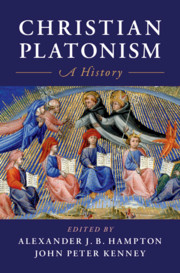Book contents
- Christian Platonism
- Christian Platonism
- Copyright page
- Dedication
- Contents
- Figures
- Contributors
- Acknowledgements
- I Concepts
- II History
- 2.1 The Bible and Early Christian Platonism
- 2.2 Platonism and Christianity in Late Antiquity
- 2.3 Christian Platonism in the Medieval West
- 2.4 Christian Platonism in Byzantium
- 2.5 Renaissance Christian Platonism and Ficino
- 2.6 Northern Renaissance Platonism from Nicholas of Cusa to Jacob Böhme
- 2.7 Christian Platonism in Early Modernity
- 2.8 Christian Platonism in the Age of Romanticism
- 2.9 Christian Platonism and Modernity
- III Engagements
- Index
- References
2.7 - Christian Platonism in Early Modernity
from II - History
Published online by Cambridge University Press: 20 January 2021
- Christian Platonism
- Christian Platonism
- Copyright page
- Dedication
- Contents
- Figures
- Contributors
- Acknowledgements
- I Concepts
- II History
- 2.1 The Bible and Early Christian Platonism
- 2.2 Platonism and Christianity in Late Antiquity
- 2.3 Christian Platonism in the Medieval West
- 2.4 Christian Platonism in Byzantium
- 2.5 Renaissance Christian Platonism and Ficino
- 2.6 Northern Renaissance Platonism from Nicholas of Cusa to Jacob Böhme
- 2.7 Christian Platonism in Early Modernity
- 2.8 Christian Platonism in the Age of Romanticism
- 2.9 Christian Platonism and Modernity
- III Engagements
- Index
- References
Summary
This chapter is an overview of the varieties of Christian Platonism in early modern philosophy including canonical figures like Descartes, Malebranche, Leibniz, Berkeley, and Kant as well as the Cambridge Platonists, Cudworth, More, Smith, and Conway. It emphasizes the diversity of views inspired by the Christian Platonist tradition in response to Epicurean naturalism.
- Type
- Chapter
- Information
- Christian PlatonismA History, pp. 280 - 302Publisher: Cambridge University PressPrint publication year: 2020

